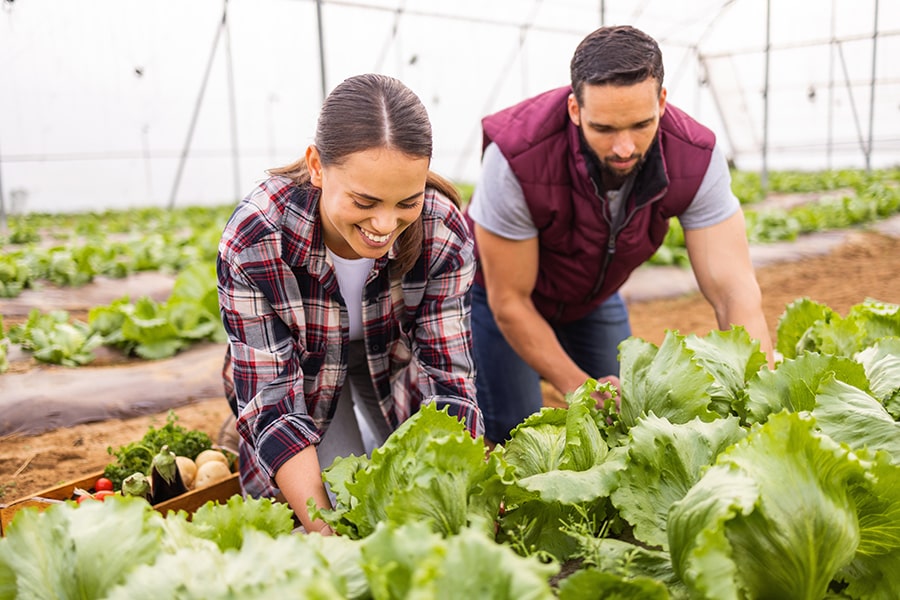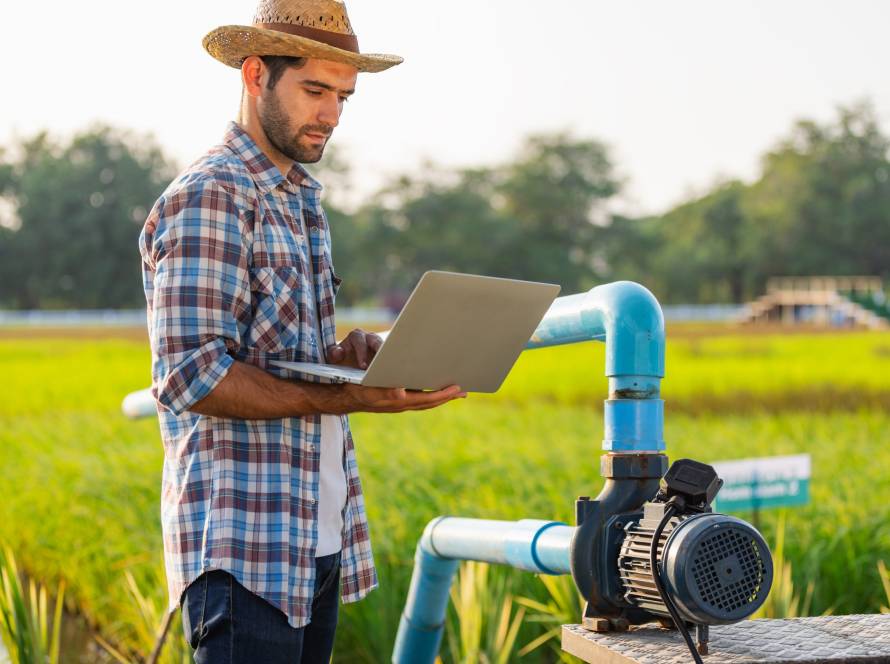Gıda Üretiminde Sürdürülebilirlik: Zeytursan’ın Öncülüğü
Dünyamız iklim değişikliği ve kaynakların tükenmesi gibi ciddi sorunlarla baş etmeye devam ederken, sürdürülebilirlik her sektördeki işletmeler için temel bir odak noktası haline geldi. Gıda ürünlerinin üretim ve nakliyesi süreçlerinin çevre üzerinde önemli bir etkiye sahip olabileceğinden, gıda endüstrisinde sürdürülebilirlik ihtiyacı özellikle ön plana çıkmaktadır.
Gıda sektöründe fason üretim yapan bir şirket olarak Zeytursan, sürdürülebilirliğin öneminin farkındadır ve çevresel etkimizi azaltmayı taahhüt eder. Sürdürülebilirliğin sadece ahlaki bir zorunluluk değil, aynı zamanda ticari bir zorunluluk olduğuna ve sürdürülebilir uygulamaları benimsemenin hem şirketimize hem de müşterilerimize fayda sağlayabileceğine inanıyoruz.
Bu blog yazısında, gıda endüstrisi bağlamında sürdürülebilirlik kavramını inceleyeceğiz ve Zeytursan’ın çevresel etkisini nasıl ölçümlediğinden ve sürdürülebilirliği desteklemek için attığı bazı adımlardan bahsedeceğiz. Ayrıca sürdürülebilirliğin işletmeler için neden önemli olduğunu ve çevreye nasıl fayda sağlayabileceğini tartışacağız.
İster gıda üreticisi, distribütör veya perakendeci olun, bu yazımızda gıda endüstrisinde sürdürülebilirliğin önemine dair değerli bilgiler sağlayacağını umuyoruz. Birlikte, herkes için daha sürdürülebilir bir gelecek inşa edebiliriz.
Sürdürülebilirlik ve Gıda Endüstrisi

Sürdürülebilirlik, bir şeyi uzun vadede sürdürme ve destekleme yeteneğini ifade eder. Çevre bağlamında sürdürülebilirlik, kaynakları tüketmeyecek veya çevreye zarar vermeyecek şekilde kullanmak anlamına gelir. Çünkü gezegenimizin kaynakları sınırlıdır ve gelecek nesillerin de bunlardan yararlanmasını sağlamak için bunları sorumlu bir şekilde kullanmalıyız.
Gıda endüstrisi, hayatta kalmamız için ihtiyaç duyduğumuz gıdayı sağlayan temel bir sektördür. Bununla birlikte, aynı zamanda çevre üzerinde önemli etkisi olan bir endüstridir. Tarım, önemli bir sera gazı emisyonu kaynağıdır ve gıda ürünlerinin üretimi, taşınması ve atık oluşumu gibi konularla doğrudan ilişkilidir.
Ayrıca gıda israfı, tarımdan perakende satışa kadar tedarik zincirinin her aşamasında önemli miktarda gıdanın atılmasıyla sektörde önemli bir sorundur. Bu atık sadece çevresel bir etkiye sahip olmakla kalmayıp, aynı zamanda kaynak ve gelir kaybını da temsil eder.
Bu zorluklar göz önüne alındığında, gıda endüstrisinin çevresel etkisini azaltmak ve gelecek nesillere gıda sağlamaya devam edebilmesini sağlamak için daha sürdürülebilir uygulamalar benimsemesi gerektiği açıktır.
Zeytursan ve Sürdürülebilirlik

Zeytursan, gıda sektöründe fason üretim yapan bir firma olarak sürdürülebilirliğin sağlanmasında önemli bir rol oynamaktadır. Zeytin, zeytinyağı, turşu ve bazı sebzeler dahil olmak üzere yüksek kaliteli ürünler üretmek için çeşitli gıda üreticileriyle çalışıyoruz.
Operasyonlarımızın çevresel bir etkisi olduğunun farkındayız ve sürdürülebilir uygulamaları benimseyerek bu etkiyi en doğru şekilde yönetmeyi önemsiyoruz. Zeytursan olarak sürdürülebilirliği teşvik etmek için çalıştığımız yollardan bazıları şunlardır:
Kaynakların Verimli Kullanımı
Üretim süreçlerimizde su ve enerji gibi kaynakları verimli kullanmaya çalışıyoruz. Atık suların geri dönüştürülmesi ve su verimli ekipman kurulumu gibi su tüketimimizi azaltmak için önlemler aldık. Operasyonlarımıza güç sağlamak için güneş panelleri ve rüzgâr türbini gibi yenilenebilir enerji kaynakları da kullanıyoruz.
Atıkların En Aza İndirilmesi
Çevresel etkimizi azaltmak için üretim süreçlerimizde atıkları en aza indirmeye kararlıyız. Fabrikamızda işlediğimiz tüm ürünlerin kabuk, posa, çekirdek gibi atıklarını yeniden değerlendirmek üzere ayrıştırıyoruz.

Ayrıca, ürettiğimiz her türlü atığın sorumlu bir şekilde imha edilmesini sağlamak için yürürlükte olan bir atık yönetimi programımız var. Kullandığımız karton ve plastik gibi malzemeleri ise geri dönüştürüyor, bahçelerimiz için besin açısından zengin topraklar oluşturmak için gıda atıklarını kompost haline getiriyoruz.
Yerel Üreticileri Desteklemek
Mümkün olduğunca yerel üreticileri desteklemeye inanıyoruz. Çünkü gıdaların kısa mesafelerden taşınması çevresel etkiyi azaltmaya yardımcı oluyor. Hammaddelerimizi yerel çiftçilerden ve tedarikçilerden temin ederek sadece karbon ayak izimizi azaltmakla kalmıyor, aynı zamanda yerel ekonomiyi de destekliyoruz.
Sürdürülebilir Ambalajlama
Ürünlerimizde sürdürülebilir ambalaj malzemeleri kullanmaya kararlıyız. Cam kavanozlar, metal kutular ve kâğıt torbalar gibi geri dönüştürülebilir, yeniden kullanılabilir veya biyolojik olarak parçalanabilir ambalaj malzemeleri kullanıyoruz.
Ayrıca, daha küçük ambalaj boyutları kullanarak veya gereksiz ambalajları tamamen ortadan kaldırarak, kullandığımız ambalaj miktarını azaltmaya çalışıyoruz. Bu sadece çevresel etkimizi azaltmakla kalmaz, aynı zamanda ürünlerimizi sürdürülebilir seçenekler arayan tüketiciler için daha çekici hale getirmektedir.
Devamlı Olarak Gelişme
Sürdürülebilirliğin devam eden bir süreç olduğunun farkındayız ve uygulamalarımızı sürekli iyileştirmeyi önemsiyoruz. Çevresel etkimizi azaltabileceğimiz ve sürdürülebilirlik uygulamalarımızı iyileştirebileceğimiz alanları belirlemek için operasyonlarımızı düzenli olarak değerlendiriyoruz. Bu, enerji ve su kullanımımızı izlemeyi, atık üretimimizi değerlendirmeyi ve iyileştirme fırsatlarını belirlemek için tedarik zincirimizi gözden geçirmeyi içermektedir.
Ayrıca, kendi operasyonlarında sürdürülebilir uygulamaları benimsemelerine yardımcı olmak için müşterilerimizle yakın bir şekilde çalışıyoruz. Böylelikle, gıda atıklarının azaltılması, sürdürülebilir içeriklerin tedarik edilmesi ve çevre dostu ambalajların kullanılması konularında rehberlik sağlamaktayız.
Sürdürülebilirlik Neden Önemlidir?

Sürdürülebilir uygulamaları benimsemek yalnızca çevre için önemli olmakla kalmaz, aynı zamanda işletmelere çeşitli şekillerde fayda sağlayabilir. İşletmeler, sürdürülebilir uygulamaları benimseyerek karbon ayak izleri ve su kullanımları da dahil olmak üzere çevresel etkilerini azaltabilir. Bu sadece gezegeni korumaya yardımcı olmakla kalmaz, aynı zamanda herkes için daha sürdürülebilir bir gelecek yaratmaya da yardımcı olur.
Ayrıca sürdürülebilirlik uygulamaları, enerji ve su kullanımını azaltarak, atıkları en aza indirerek ve verimliliği artırarak işletmelerin tasarruf etmesine de yardımcı olabilir. Bu maliyet tasarrufları işletmeye yeniden yatırım olarak dönebilir veya daha düşük fiyatlar şeklinde tüketicilere aktarılabilir.
Sonuç olarak sürdürülebilirlik, gıda sektörü dahil her sektörde işletmeleri etkileyen önemli bir konudur. Gıda sektöründe faaliyet gösteren bir fason üretim şirketi olarak Zeytursan, sürdürülebilir uygulamaları benimsemenin önemini kabul etmekte ve çevresel etkimizi azaltmayı taahhüt etmektedir.
Kaynakları verimli kullanmak, atıkları en aza indirmek, yerel üreticileri desteklemek, sürdürülebilir ambalaj kullanmak ve uygulamalarımızı sürekli iyileştirmek için çalışıyoruz. Bunu yaparak, yalnızca çevresel etkimizi azaltmakla kalmıyor, aynı zamanda kârlılığımızı da geliştiriyor ve herkes için daha sürdürülebilir bir gelecek inşa ediyoruz.
Sürdürülebilirlik taahhüdünüzü paylaşan bir sözleşmeli üretici arayan bir gıda üreticisiyseniz, sizi hizmetlerimiz ve sürdürülebilirlik hedeflerinize ulaşmanıza nasıl yardımcı olabileceğimiz hakkında daha fazla bilgi almaya davet ediyoruz. Birlikte daha sürdürülebilir bir gıda endüstrisi ve herkes için daha sürdürülebilir bir gelecek inşa edebiliriz.





